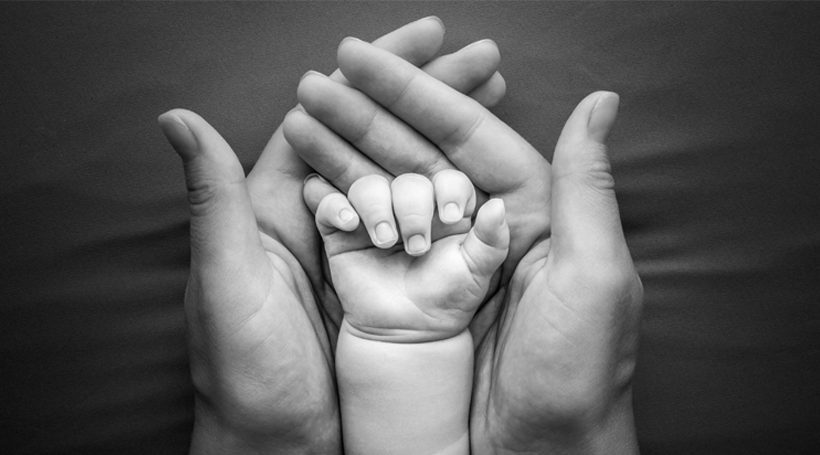As a child, Monica Schmidt, the youngest of 4 daughters raised by their single, working mother, found comfort in the closeness of her family. They remained inseparable as adults – living close by, vacationing together and often gathering for a simple cup of tea and shared laughter.
When her mother passed away suddenly in February, it felt as though she had been sucked into a void as deep and unknowable as a black hole.
“My mother taught me everything except how to live without her,” says Schmidt, 47. “The family dynamics shifted so intensely we couldn’t believe it. She was the last of that generation. We were suddenly the elders and we didn’t feel ready to be that. Even our children said they felt older at the funeral.”
“One of the scariest moments as a new mom is when you bring your baby home, and suddenly, it’s like, ‘Ok, now what do I do? In most cases, the first person you reach out to for answers is your mom.”
Losing a mother brings challenges that are uniquely painful for their daughters, experts say.
“For women who were especially close to their mothers, the grief is singular,” says Charity Jones, a bereavement specialist with Samaritan. “She was the one they could always turn to when no one else was there, who guided her into adulthood and motherhood and later became a friend in unexpected ways.”
Jones says that starting and growing their own families without the support of their mothers can be particularly challenging for younger women.
“One of the scariest moments as a new mom is when you bring your baby home, and suddenly, it’s like, ‘Ok, now what do I do?’” she says. “In most cases, the first person you reach out to for answers is your mom. The loss of that support can make you feel profoundly lost.”
Michelle Carlamere, a social worker, knows this all too well. She lost her mother when she was 35, and her children were 3 and 5 years old. “I look back on how many times I wanted to ask her advice,” says Carlamere, vice president at Oaks Integrated Care. “Oh my god, it was a bazillion times. You feel like you’re guessing on so many things – little things you’d ask your mom, but she’s not there to answer.”
Carlamere stresses that if grief isn’t addressed in a healthy way, it can lead to other issues.
“As a social worker, we look for signs of how people are coping so it doesn’t open a Pandora’s box of mental illness,” Carlamere says. “Depending on what happened, loss can bring up past trauma.”
Given that talking about grief is still often seen as a cultural challenge, finding a safe space to discuss it can be beneficial for those working through their pain.
“Just knowing someone else gets it is so important,” Carlamere adds. “Whether it’s through group sessions or individual counseling, having a space to talk about grief validates your feelings and helps you learn to live with the loss. The ups and downs, the holidays, the anniversaries – it’s all very real.”
In South Jersey, Samaritan’s “Daughters Without Mothers,” an all-female group, is a unique free resource offered multiple times annually. For six weeks on Zoom, women from various walks of life, ages and backgrounds come together over the shared experience of having lost their mothers.
“Some might have lost their mothers just 2 months earlier, while others have been grieving for years,” says Jones, who recently facilitated a group of 6 women. “It’s not about me offering advice or interventions. It’s about providing a space to talk it out and listen to each other. They realize they’re not alone in their feelings, and that shared knowledge brings them strength.”
Guilt, in its many forms, is a common theme when grieving daughters open up, says Jones, who relates her own struggles caring for her mother over her extended illness and death 11 years ago.
“I carried guilt for not always helping my kids with their homework because I was busy caring for my mom,” says Jones. “And then, after she passed, for not doing enough to save her. I often hear it: People feel like they should have done more, found more resources or been more present. There’s the guilt of not saying, ‘I love you’ enough or taking your mom for granted at the beginning of her illness, not realizing how serious it was until it was too late.”
Anger can also be intertwined. “I remember feeling angry with my mom for not taking better care of herself and then feeling guilty for that anger because she was always caring for somebody other than herself,” Jones says. “I had to come to terms with those conflicting emotions.”
Hashing out all the emotional challenges led the women to better understand the need for self-care. “They realized, in their role of caregivers, they had neglected their own health,” she says. “They had fallen behind on doctor visits and recognized they were slipping into the same patterns of illness that their mothers had. We talked a lot about how to get back on track and regain balance in their lives.”
Grief, however, has no set timeline. Sometimes it takes years or even decades before it fully surfaces or before people feel ready to address it, Carlamere says.
“Maybe your interests or life circumstances have changed and you might be ready to reach out for support,” she adds. “It’s important to know it’s never too late to start the healing process.”














